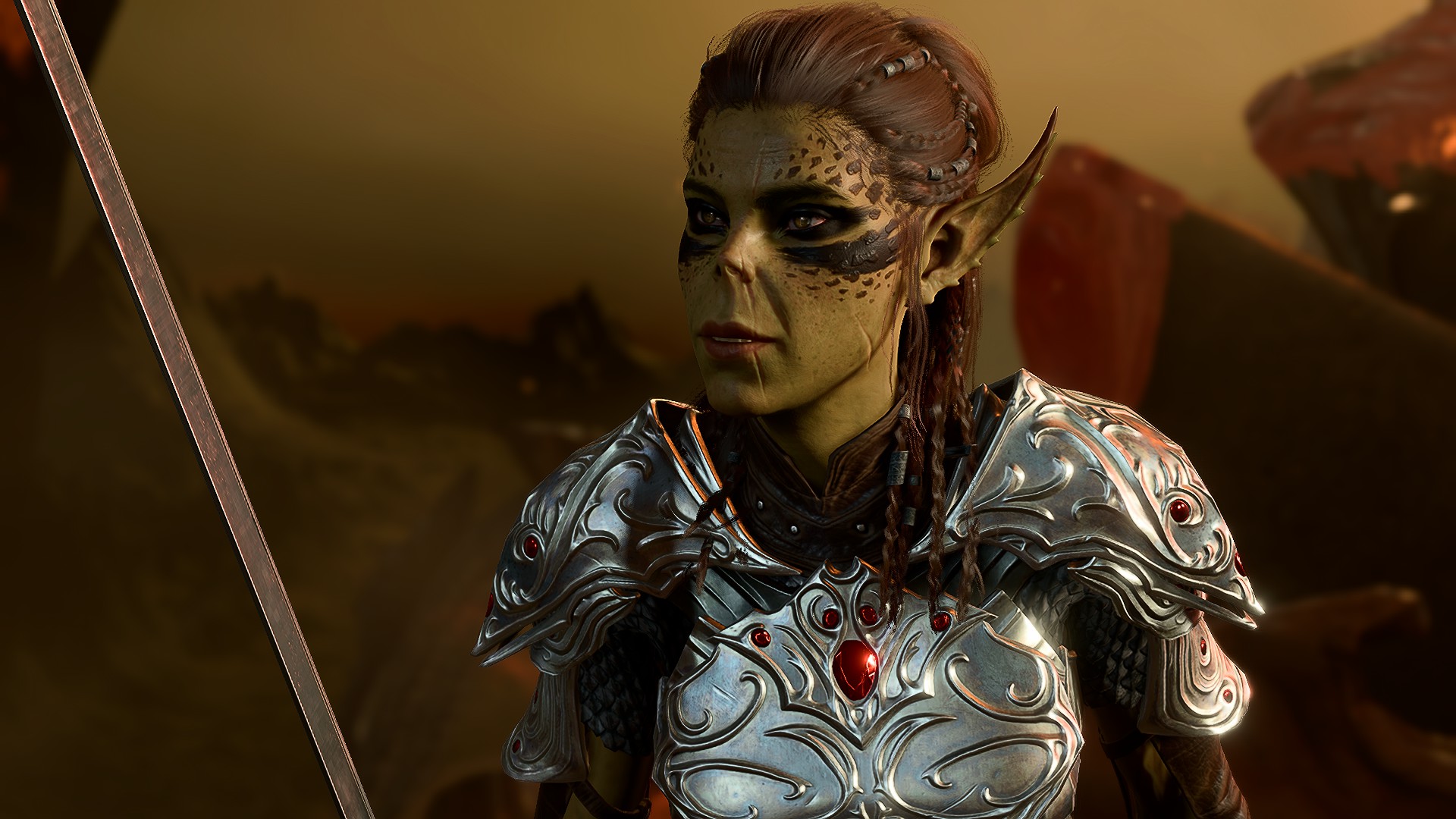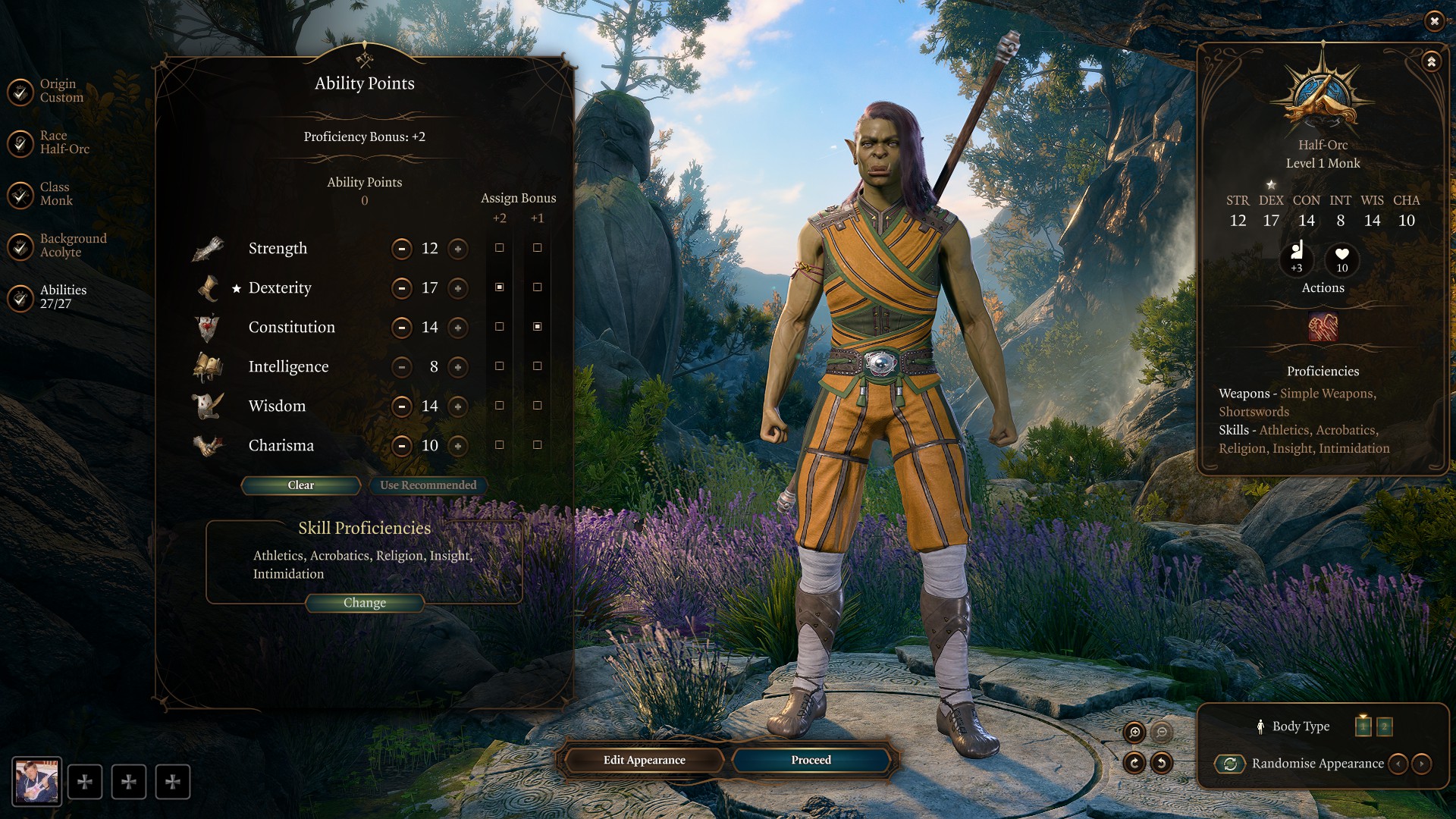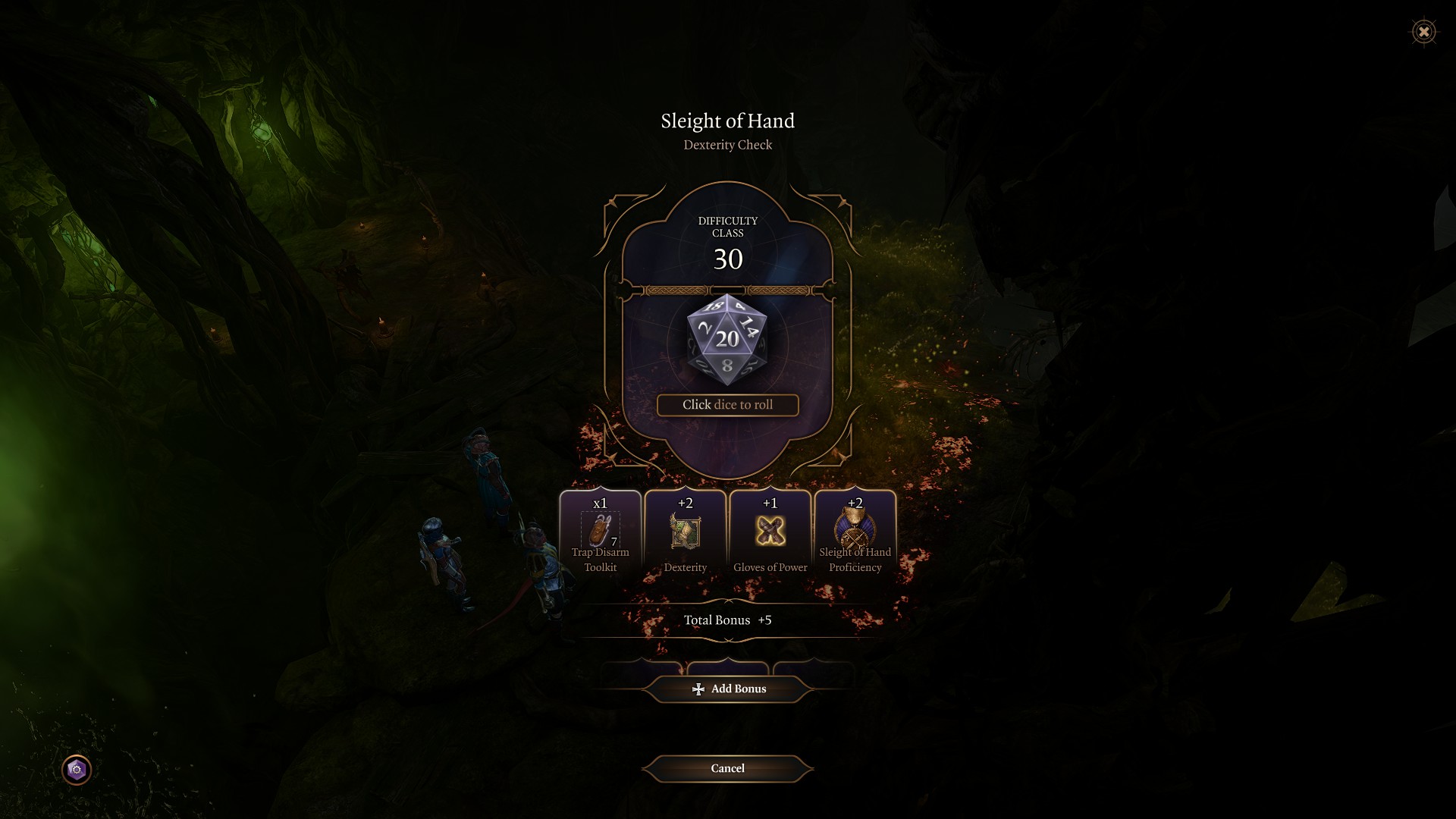
Though it makes some tweaks, for the most part Baldur's Gate 3 is very faithful to the rules of Dungeons & Dragons 5th edition—which means a grounding in tabletop role-playing makes it much easier to get to grips with its complicated RPG systems. That's a little daunting if you've never rolled a d20 in your life, but never fear: my quick and simple cheat sheet will get you up to speed on what all the most common D&D terms mean, and how they work in Baldur's Gate 3.
Abilities
The six core stats of your character: Strength, Dexterity, Constitution, Intelligence, Wisdom, Charisma. The higher the number, the better you are at that thing—an ability bonus is derived from each of your ability scores and added to relevant rolls. Unlike many RPGs, you'll only have a few chances to add to these abilities. Find out more about abilities in my abilities, proficiency, and skills guide.
AC
Stands for "Armor Class." This is the number your enemies have to roll on a d20 (see below) to hit you in combat. The higher it is, the safer you are—better armour, higher Dexterity, or protective magic can boost it.
Advantage/Disadvantage
Temporary buffs or debuffs to attack rolls or skill rolls will usually not add a bonus or penalty to the roll, but will instead give you Advantage or Disadvantage. Advantage means you roll the dice twice and take the better of the two results; Disadvantage is the opposite, you roll the dice twice and take the worse of the two results. If you ever have both Advantage and Disadvantage on the same roll, they cancel each other out.
Background
The Background you choose represents your character's life before they became an adventurer—perhaps they were a scholar, a street urchin, or a criminal. It grants free proficiency in two preset skills. In tabletop D&D, it also gives you a little utility bonus, like being better at navigating in cities; those wouldn't really work in Baldur's Gate 3, so instead they're linked to Inspiration. Find out more about that below.
Cantrip
A spell that you can use an endless amount of times per day. Unlike other spells, they do not use a spell slot, so they're always available to you. In 5e, these tend to be defining core actions for spellcasting characters—for example, a Bard's Vicious Mockery or a Wizard's Firebolt can be used as their default means of attacking in combat, while a Druid's Shillelagh allows them to routinely buff their melee stats so they can compete up-close. Some are more for utility, such as Guidance, which allows you to add a +d4 to skill rolls.
Critical hits and critical misses
In combat, a 'natural 20' (meaning you actually rolled a 20 before any bonuses) is a critical hit, and scores double damage. In D&D 5e, this is the only critical result that exists—but Baldur's Gate 3 takes things further, inspired by common tabletop house rules. In BG3, you can also roll a critical success when making a skill check, causing a natural 20 to automatically succeed regardless of the DC (see below). You can also critically fail at both skill checks and attack rolls—a natural 1 is always a failure, regardless of the DC.

d4/d6/d8/d10/d12/d20
These indicate different types of dice—the number is how many sides it has. For the majority of rolls in the game, you use a d20—a 20-sided dice. Damage and some spell effects use smaller dice—d4s, d6s, d8s, d10s, and d12s. A weapon that has a damage of d4, for example, will do 1-4 damage each time it hits, modified by your damage bonus.
DC
Stands for Difficulty Class. When making a roll, this is the number you're trying to hit to succeed. For a skill check, this will be set by the GM (or in Baldur's Gate 3's case, the developer) based on how difficult the task should be; for an attack roll, the DC is your enemy's Armor Class; and for saving throws, it's based on the stats of the person you're saving against (such as a Wizard's spellcasting ability bonus).
Inspiration
In tabletop D&D, Inspiration points are gained by staying true to your character's personality and ideals, and can be used to re-roll any d20 roll. In Baldur's Gate 3, they're a little different—they can only be used to re-roll skill checks, and they're earned by performing actions that match your background. Each background's description gives you an idea of what actions trigger it—for example, a Sage gets Inspiration for discovering new knowledge. Your companions earn Inspiration too, and all the points go into one big pool for you to use.
Multi-classing
When you level up, you can choose to take a level in a different class, which will stack with your current class. This can be a way to create powerful hybrid multiclass builds—but it's only worth doing if you have a very clear idea in mind, as haphazard multiclassing can split your character's focus and make them much weaker than the rest of the party. Unlike in D&D 3.5, where the best characters almost always dipped into other classes and prestige classes, in D&D 5e (and Baldur's Gate 3), sticking to one class for the whole campaign is not just a viable choice, it's often the best one.
Proficiency
Every character has a proficiency bonus, which goes up as you go up in level. When making a roll for something you're proficient in—whether that's a skill roll with one of your chosen skills, an attack roll with a weapon your class can use, or a saving throw your class gives proficiency with—you can add your proficiency bonus. Having proficiency with a type of armour simply means you can use that armour type without penalty—wearing armour without a proficiency in it gives you disadvantage on Strength and Dexterity rolls, and prevents you from casting spells.

Rest
A short rest is a brief moment of downtime to heal some of your wounds. A long rest is a full 8 hours of sleep and recovery, which provides extra healing and refreshes things like spell slots and once-per-day class features. In Baldur's Gate 3, the rules are simplified compared to tabletop D&D—you can only take a short rest twice per day, and it heals half your character's hit points. Long rests recover all of your hit points, and reset your allowance of short rests. They may also trigger new dialogue with companions, or other overnight events.
Saving throws
A d20 roll to resist an enemy effect. Saving throws are always tied to a specific ability, and you can add your ability bonus for that ability to the roll. For example, Vicious Mockery, a spell that attempts to unsettle you with magical insults, is resisted with a Wisdom saving throw, against a DC derived from the caster's stats. You can also have proficiency in a specific type of saving throw, usually due to your class. The Rogue's proficiency in Dexterity saving throws, for example, allows them to add their proficiency bonus to the roll, making them particularly good at dodging out of the way of things like enemy area-of-effect spells.
Skills
Skills represent what specific actions your character can take out in the world. To make a skill check, you roll a d20, and add your ability bonus, your proficiency bonus if it's a skill you're proficient in, and any other bonuses you might have from spells or class features. If you meet the DC of the check, you succeed. If you don't, you fail. For example, in Baldur's Gate 3, you'd make a roll using your Deception skill to lie to someone, or a Sleight of Hand check to lockpick a door.
Spell slots
Each time you cast a spell other than a cantrip, it uses up one of your spell slots for the day. Each spell slot has a level that determines what spells it can cast—for example, a level 1 slot can only be used to cast a level 1 spell. You can, however, cast lower level spells with a higher level slot, and in some cases that can even buff the spell to be more powerful. Typically, spell slots are recovered after a Long Rest. Each spellcasting class has different rules for how its spells and spell slots work, so make sure to read the tooltips on yours before you start blasting.







